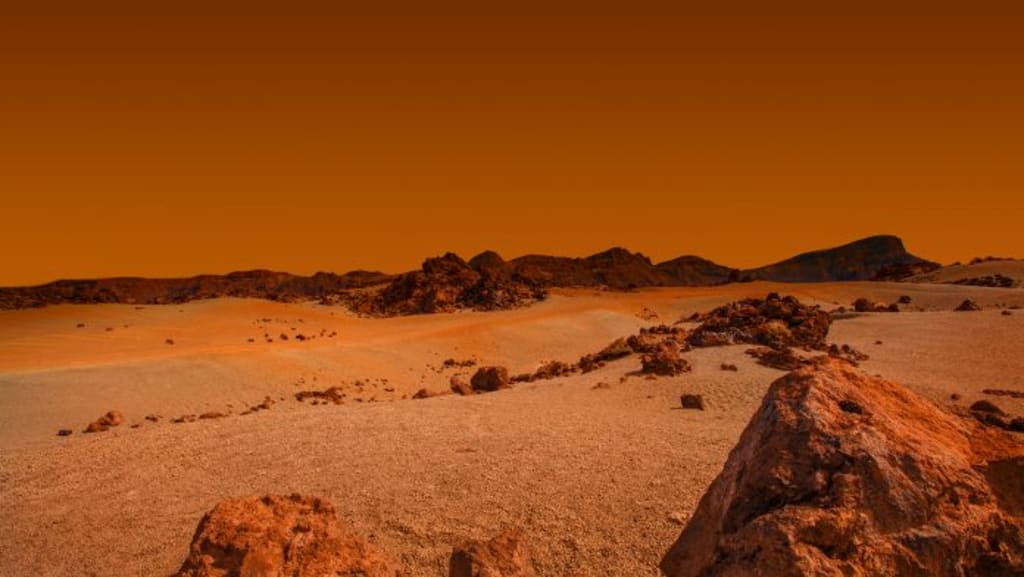
Once upon a time, in the distant African savannah, Homo sapiens, the savviest of the species, took bold steps that would change the world forever. Fast forward to the present day, where humanity finds itself at a crucial juncture - facing challenges on Earth and contemplating the next grand human migration. Mars, with its tantalizing appeal, has emerged as a potential destination for adventurous souls seeking to colonize another planet. But is this interplanetary dream a viable reality?
Mars, The Red Planet, holds allure for several reasons. It stands relatively close to Earth, just 140 million miles away on average. With similar day lengths to Earth, adjusting your alarm clock is the least of your worries. The Martian surface is rich in valuable elements, including iron, magnesium, and silicon. Mining these resources could reduce the need for excessive cargo when making the journey to Mars. Moreover, Mars sits on the edge of the solar system's habitable zone, where liquid water once flowed freely, leaving tantalizing possibilities for future water sources.
However, the challenges of colonizing Mars are as daunting as the allure. Mars boasts a sparse and toxic atmosphere, with just 1% of Earth's surface air pressure. Stepping outside without protection would lead to instant death. Additionally, the thin Martian atmosphere, comprised of 95% carbon dioxide, leaves humans vulnerable to harmful cosmic and solar radiation. This lack of a protective magnetic field raises concerns about the long-term effects of living on Mars.
The weather on Mars is unpredictable, with ferocious dust storms that can last for days or even weeks, posing a significant threat to equipment and human habitats. The planet's low gravity, only one-third of Earth's, presents unknown risks to the human body, potentially leading to muscle atrophy and bone density loss. Martian temperatures are bone-chilling, dropping to an average of -62°C and plummeting to -140°C during harsh winters.
Furthermore, Martian soil is toxic, making it impossible to grow food for sustenance. Even though the dream of terraforming Mars to make it habitable is tempting, the reality is harsh. Proposals like Elon Musk's plan to bombard Mars with 10,000 nuclear weapons to create a runaway greenhouse effect have significant drawbacks. The potential of triggering a nuclear winter could make the planet even colder, counteracting the intended warming effect.
Alternative ideas, such as using a giant mirror or introducing chlorofluorocarbons to Mars, have their own limitations. The scale and complexity of terraforming Mars to make it suitable for human habitation present enormous technical and logistical challenges.
Despite the difficulties, there remains hope for Mars colonization. Artificial habitats could be built on or beneath the Martian surface, offering a more feasible option in the near future. Elon Musk's ambitious plan to establish a fully functioning 'Mars city' with a million inhabitants by 2050 sounds captivating, but the immense cost of around 10 trillion dollars poses a significant hurdle.
In conclusion, the idea of humans migrating to Mars is indeed plausible, given the incredible progress of space exploration and technology. Whether or not this grand interplanetary journey becomes a reality hinges on our ability to overcome the numerous obstacles that stand in our way. As we gaze towards the stars, the dream of exploring and colonizing new worlds remains alive in the hearts of adventurous visionaries. But the realization of this dream demands extraordinary determination, collaboration, and ingenuity - qualities that have driven humanity to achieve remarkable feats throughout history. Only time will tell if the Martian Odyssey becomes a legendary chapter in the story of human exploration or remains a captivating but distant dream on the horizon of possibility.
About the Creator
Andrew
I really enjoy branching out and learning new and interesting things about the world around me and the history behind it. I try very hard to keep an open mind and dig as far down as the rabbit hole goes.





Comments
There are no comments for this story
Be the first to respond and start the conversation.